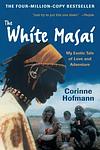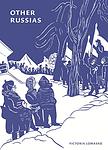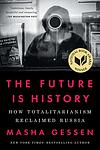The Greatest Russian, Swiss "Nonfiction" Books Since 1970
Click to learn how this list is calculated.
This list represents a comprehensive and trusted collection of the greatest books. Developed through a specialized algorithm, it brings together 290 'best of' book lists to form a definitive guide to the world's most acclaimed books. For those interested in how these books are chosen, additional details can be found on the rankings page.
Genres
Countries
Date Range
Reading Statistics
Click the button below to see how many of these books you've read!
Download
If you're interested in downloading this list as a CSV file for use in a spreadsheet application, you can easily do so by clicking the button below. Please note that to ensure a manageable file size and faster download, the CSV will include details for only the first 500 books.
Download-
1. The Gulag Archipelago by Aleksandr Solzhenitsyn
"The Gulag Archipelago" is a comprehensive and stark account of the Soviet Union's forced labor camp system. The narrative, based on the author's own experiences as a prisoner and on extensive research, documents the history, operation, and life inside the Gulag system. It also provides a critical examination of the regime's legal system, police operations, and political leadership. The book is an intense indictment of the Soviet Union's totalitarian regime, revealing its brutality, inhumanity, and vast scale of its prison camp network.
-
2. Mars by Fritz Zorn
"Mars" is a poignant autobiographical account of a young man's life and his battle with terminal cancer. The narrative delves into the author's affluent yet emotionally barren upbringing in a Swiss suburb, which he refers to as "Mars," symbolizing its cold and alienating environment. The book is a critique of his repressive bourgeois society, which he believes contributed to his psychological and physical illness. Through introspective and often angry prose, the author explores themes of alienation, the search for identity, and the impact of societal norms on individual well-being. His struggle is not only against the disease but also against the cultural and familial constraints that stifled his emotional development.
-
3. Grid Systems In Graphic Design by Josef Müller-Brockmann
This book is a seminal guide to graphic design and typographic composition, focusing on the use of grid systems as a foundational tool for ensuring visual coherence and hierarchy across various design projects. It provides designers with a methodical approach to organizing text and images in a clean, logical, and aesthetically pleasing manner. Through systematic arrangement, the grid serves as an essential framework that can be applied to a wide range of design work, from print media to digital interfaces. The book delves into the principles, applications, and benefits of grid systems, offering practical advice, examples, and clear illustrations to help designers harness the power of grids to create effective, impactful visual communications.
-
4. The Unwomanly Face Of War by Svetlana Alexievich
"The Unwomanly Face Of War" is a powerful and poignant collection of interviews with Soviet women who fought in World War II. Through their testimonies, the author sheds light on the often overlooked and untold stories of these brave women who served as snipers, pilots, nurses, and soldiers on the front lines. The book explores their experiences, sacrifices, and the lasting impact of war on their lives, providing a unique and intimate perspective on the realities of war from a female point of view.
-
5. The Portable Jung by Carl Jung
"The Portable Jung" is a comprehensive collection that encapsulates the core ideas of analytical psychology, as developed by its founder. The book offers a selection of writings that delve into the concepts of the collective unconscious, archetypes, dreams, and individuation. It serves as an accessible introduction to Jung's transformative ideas on the psyche, providing readers with insights into the depths of human behavior and the psychological underpinnings that influence personal growth and understanding. This compilation not only highlights Jung's profound influence on psychology but also his interdisciplinary reach into areas such as mythology, religion, and culture.
-
6. The White Masai by Corinne Hofmann
The book is a true story of a Swiss woman who, while on holiday in Kenya, falls in love with a Samburu warrior. Defying her family, friends, and cultural norms, she decides to leave her life in Switzerland behind to marry him and live in his remote village. The narrative delves into her challenging and transformative journey as she adapts to a vastly different culture, learns the local customs, and navigates the complexities of her interracial marriage and the community's expectations. Her story is one of love, resilience, and the pursuit of happiness in the face of extraordinary cultural differences.
-
7. Hope Against Hope by Nadezhda Mandelstam
"Hope Against Hope" is a poignant memoir that recounts the harrowing experiences of the author during the Stalinist purges in Soviet Russia. The narrative centers around her life with her husband, an acclaimed poet, who was arrested for his alleged counter-revolutionary activities. Through her detailed and emotional account, the author exposes the brutal realities of Soviet political repression and the resilience of the human spirit. Her story is not only a personal tale of survival and loss but also a powerful testament to the endurance of love and intellectual integrity under the most oppressive conditions.
-
8. The Diary Of A Gulag Prison Guard 1935 6 by Ivan Chistyakov
"The Diary Of A Gulag Prison Guard 1935-6" is a chilling and harrowing memoir that provides a firsthand account of the atrocities and cruelty witnessed by Ivan Chistyakov during his time as a guard in a Soviet Gulag prison. Through his detailed entries, Chistyakov reveals the dehumanizing conditions, brutal punishments, and constant fear that both prisoners and guards endured within the oppressive Soviet regime. This haunting narrative serves as a stark reminder of the dark realities of the Gulag system and the lasting impact it had on the lives of countless individuals.
-
9. Other Russias by Victoria Lomasko
"Other Russias" is a powerful and thought-provoking graphic novel that offers an intimate and unfiltered glimpse into the lives of marginalized individuals and communities in contemporary Russia. Through her stunning illustrations and poignant interviews, Victoria Lomasko sheds light on the struggles, hopes, and resilience of diverse groups such as LGBTQ+ activists, migrant workers, political dissidents, and the forgotten voices of rural communities. This eye-opening book challenges stereotypes and provides a humanizing portrayal of those who are often overlooked or silenced in Russian society.
-
10. The Cult Of Emptiness The Western Discovery Of Buddhist Thought And The Invention Of Oriental Philosophy by Urs App
This book delves into the fascinating journey of how Buddhist thought was introduced and interpreted in the West, tracing the origins back to the encounters between European intellectuals and Asian cultures. It explores the notion of "Oriental Philosophy" as a construct of Western imagination, shaped by the translations and interpretations of texts that were often misunderstood or taken out of context. The author critically examines the romanticization and misconceptions that led to the creation of a mystical and exotic Eastern philosophy, highlighting the impact of these interpretations on both Western perceptions of Buddhism and the development of modern philosophy. Through a meticulous historical analysis, the book reveals the complex dynamics of cultural exchange, intellectual curiosity, and the quest for spiritual understanding, shedding light on the enduring fascination with the concept of emptiness and the cultural constructs that have emerged around it.
-
11. The Future Is History: How Totalitarianism Reclaimed Russia by Masha Gessen
This book provides a deeply researched examination of the resurgence of totalitarianism in Russia, focusing on the lives of four individuals born at what promised to be the dawn of democracy. The book explores how, after the fall of the Soviet Union, instead of moving towards a democratic society, Russia has seen a rise in a new form of totalitarianism under its current leadership. It delves into the psychological shift in the Russian populace, the government's use of homophobia as a method of control, and how the internet and social media have been weaponized for political purposes.
Reading Statistics
Click the button below to see how many of these books you've read!
Download
If you're interested in downloading this list as a CSV file for use in a spreadsheet application, you can easily do so by clicking the button below. Please note that to ensure a manageable file size and faster download, the CSV will include details for only the first 500 books.
Download









